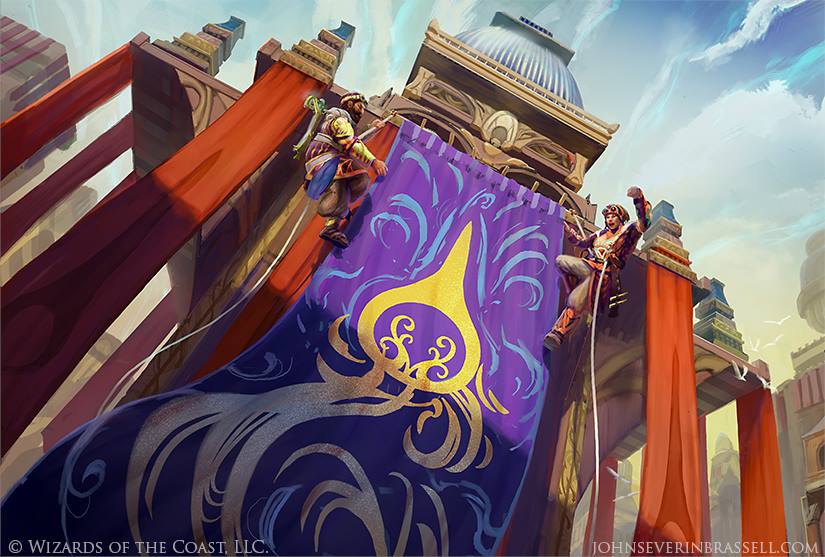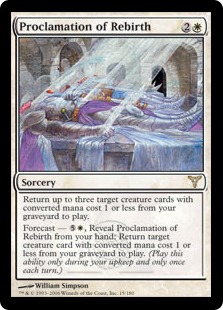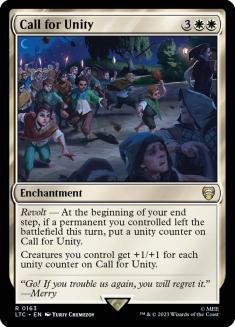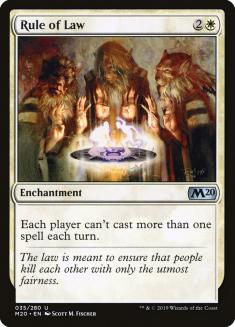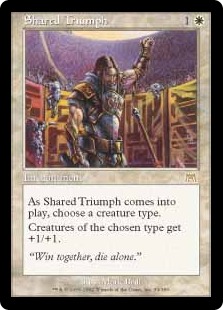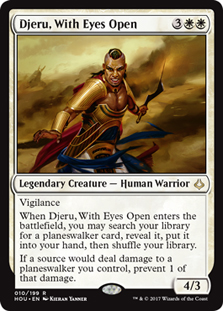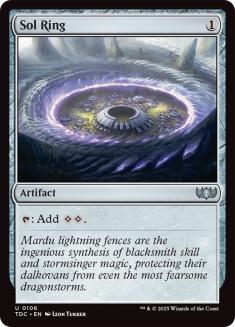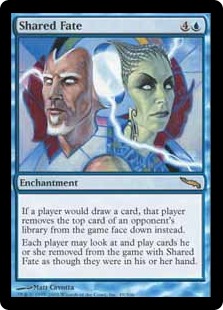Recently, we talked about the Commander Rules Committee’s ambitions for 2022. Those are things we want to accomplish and where we want to go. This time, I want to talk about where we are. It’s the space from which we’ll launch into those plans. We’ll talk about the format’s relative health, where a few of our successes lie, and what some of our challenges might be.
On the whole, Commander is in a good spot. We’re indisputably the most popular way to play Magic and have been for a while. The format is a significant path for players coming into the game and joining a diverse community. We’ve achieved a level of success that we never intended to or dreamt about. That’s not to say that everything is perfect, just that there’s quite a bit to be happy about.
Interestingly enough, there are those who see our success as more of a bug than a feature. They believe that there was a freedom in being the little format that could. I believe we haven’t lost the freedom to do things no other format does. While it’s been a long time since we were a tight little group of judges playing behind the stage after a long day at the Pro Tour, we are still free to bring the attitude that was responsible for our success—namely, that we’re going to do something different for a different audience.
A statement on the health of the format is a useful opportunity to point out that in the continued upswing of people joining our community, some folks will bring the “optimize for winning” mindset. What we see there is that that mindset becomes risky for the ability of other people to play casually—which is not an indictment of that mindset. In the abstract, there are no red flags. We only get into trouble when that mindset prioritizes itself over the group (whether that’s your best buds or three strangers at a CommandFest).
Accepting that all styles of play are valid only goes so far in what we want to accomplish, which is to be the best social format around. We can recognize the former while still understanding where some source of friction arises. The big takeaway is that we can’t ban our way out of trouble. Social problems require social solutions.
One of the ways that the RC has found success is in positive engagement with folks who like to play outside of the traditional target demographic (a term about which I’ll have something to say momentarily), While it’s still sometimes a bumpy road, the spirit of engagement and cooperation is better than it’s ever been. We can continue to build on that improvement to smooth the path forward by continuing to treat each other with both empathy and respect. We can focus on keeping the format social and fun without telling anyone they’re “doing it wrong.”
Playing at a particular level or style isn’t a negative. An individual insisting that everyone else adapt to their style is what becomes problematic. I think we have reasonably broad agreement on that point, so I won’t belabor it. I want to focus on a new tack.
For a long time we’ve defined and referred to Commander’s target demographic as folks playing at a lower power level, because that style tends to lend itself to social play (please check out my piece on discussing the definition of casual on how this has historically been the case, specifically the concept of pressure). Such a definition may have served us in the past when we were on the fringe. I believe we can think in different terms in the future without changing our underlying philosophy.
It’s time to redefine Commander’s target demographic as “people who want to have fun together.” The RC still provides a framework for how we see the best way for the broadest audience to enjoy themselves: high variance and big, swingy plays with often-underappreciated cards. Less repetition and more variety are what lead to memorable moments, since you’re more likely to get card interactions that you haven’t seen before and battlefield states that are particularly wild. This is where Commander has made its bones for a long time and it’s the direction we want continue to lean into.
I realize that we can’t just wave our hand, redefine what target demographic means, and move on. It also has to come with a commitment to reinforcing the message that’s the first line of our Philosophy Document: Commander is for fun. At the end of the game, if the players answer yes to the question Did you have a good time? then we’ve done it right. With our philosophical underpinnings in place, let’s look at a few of the bright spots.
Success: Input in Design
We saw in 2021 the results of some things that had been in the works for a while. The process of design and development in Magic takes a time, usually up to two years. Even when there’s a commitment to change, players aren’t likely to see the results for quite some time.
The relationship between the RC and Studio X is in the best place it’s ever been. Not only do we have increased lines of input into the design process, we have a more formalized commitment from them in providing that input. Our guidance doesn’t just come in the card-making process, though. We’ve had extensive conversations with the primary operatives in the foundations of Commander design philosophy.
Standing up Melissa DeTora’s Casual Play team is evidence that the Commander community is having impact. Featuring among others the CAG’s Ellie (of the Veil) Rice, it looks like they’re going to explore the things that make focused-on-fun and social-style play successful. I’ve had conversations with some of the team and I’m pleased with how they’re coming to think about Commander. Working to help them design a better game for the format’s fans is the kind of place we want to be.
Success: The RC Discord Server
The RC Discord server has been one of the unmitigated successes of the last year. We’ve reached over 5,000 registered members who gather together in a well-moderated safe space. The format philosophy and my SCG article feedback channels are lively with discussion and debate. There are plenty of on- and off-topic channels that cover all the facets of Commander and the lives we all lead. There have been great discussions that have yielded fruit for both us and the players. Please drop on by at your convenience and add yours to the many excellent voices there.
Success: Pregame Conversations (Trusted Groups)
The RC believes that Commander is best enjoyed in trusted groups. These are groups of friends that play together or extended groups that you both enjoy playing with and have some personal investment in. They’re people whose enjoyment you care about.
We’re happy that the idea of normalizing pregame conversations has swept through the community. Content creators all over, such as I Hate Your Deck, have put them at the forefront of their videos. On the RC stream, we’ll let the guest suggest the direction we go and then adapt to them. However and whoever, the message is the same: get everyone in a comfort zone. It’s all about positive communication.
I’ve seen some players go to additional lengths during their pregame conversations to be honest about what their deck does. This ranges from the cards or combos they might be running to the turn on which they’re likely to win if no one stops them. Again, this works in trusted groups because the people are invested in each other.
Although they often get lumped together, I’d like to differentiate between pregame conversations and Rule 0. The former can be a subset of the latter, but I don’t see them as the same. A pregame conversation is simply about what kind of game you all would like together. A pregame conversation isn’t limited to whether you’re going for the jankiest or spiciest decks or the sometimes-fleeting concept of power level. There are other stylistic choices to make, like particular commanders or deck themes.
A Rule 0 conversation is still about agreement, but that agreement is about which rules of the format (or even game) that you’re going to change, modify, ignore, or adapt. I’ve heard people tell me that their group doesn’t play with commander damage or does play with Primeval Titan. That’s a Rule 0 chat. The reason it works is because at least to some level the people involved trust each other.
We’ve also seen some movement into the post-game conversation. After the game is over, folks will review the game that they just had to see if it met the pre-game expectations or to see where they could have better communicated with each other. We can shed more light onto how these conversations happen and pick up on their best practices.
Area of Concern: Pregame Conversations (Untrusted Games)
It seems right to turn over the pregame conversation coin in the first area of concern. There’s a great deal of untrusted play at the LGS and larger-scale events (once we truly get back to them). We understand that not everyone has the luxury of a consistent group of friends to play with. These become more difficult to navigate. Even if you’re relatively friendly and open, you simply don’t have the same investment in the people you’re playing with and you can’t assume that they have it for you.
Pregame conversations in this world are fraught. People from different places and backgrounds disagree on even the meaning of things (“My deck’s a 7” is a worn-out trope for a reason). I’ve listed this as an area of concern because other than reinforcing the message of what we think are great communal Commander games—again, high variance and splashiness—I’m not sure that there’s much help we can offer. I’ve previously explained why I don’t think deck-rating charts work all that well. We can try to offer guidance on language to help folks navigate these conversations, but that’s not going to work without some sort of agreed-upon standard that’s adopted across the community.
The model of discussing what your deck does has even more benefit with people you don’t know. Whereas players who are familiar with you know the things you like to play (like fellow RC member Scott Larabee and his Maze of Ith), strangers don’t have the same sense of your game. In the spirit of getting everyone as close to possible as the same page, share a little.
Rule 0 conversations as I’ve defined them above are even harder in untrusted groups. One of the reasons there’s a baseline rule set is so that everyone starts from the same page. Deviations are uncomfortable with people you don’t know, since you’re not certain you can trust their motivations. For me, the best answer is to do what you’re comfortable with. If someone is trying to pressure you into a change you don’t like, I suggest you politely say no.
Although this is an area of concern and I want to see where we can help, I don’t think there’s an epidemic of miserable untrusted games happening. The reason it’s on my list is because it’s an anxiety I’ve heard the community articulate, and I want to address it. Awkward untrusted games happen enough for us to want to shed some light on the phenomenon and offer thoughts on mitigating the problems that can arise. The first step is to see where we can find common language and tools to help players navigate the difficult terrain of untrusted play. The next step after that is to engage with content creators in order to share that language and those tools with as many people as possible.
A final point on this I want to stress is that no game is better than a bad game. You’re not the villain if you say no to a game that doesn’t feel right. Sometimes, stuff just doesn’t fit right and no one’s to blame. I highly suggest liberal use of walking away when in doubt. I know you really want to play some Commander; we don’t want the experience to leave you with a bad taste.
Area of Concern: Homogenization and Speed
Although it’s easy to consider them two separate things, homogenization and speed are interrelated in creating difficulties for players, especially in untrusted groups.
Homogenization shows itself in two different ways. The first is having what people consider format staples in each color or even color combination. You might even hear folks call them “must-plays.” The second, and even less desirable effect, is people believing they need certain cards (perhaps those staples among them) in order to play the format.
Speed is about the game’s critical turn being ever-earlier. While they can be present in established groups, players who frequent untrusted games don’t have the same feedback loop in order to mitigate the issues. They’re left to their own devices and feel forced to adapt.
We want Commander to be a place where Ladies Looking Left or Arms Wide Open tribal decks can enjoy themselves alongside other more traditional decks. After all, one of our philosophical underpinnings is the opportunity for self-expression. Homogenization restricts the opportunity for this to happen, as “strictly better” cards push out the ones with more thematic resonance.
Homogenization also comes from fear of missing out (FOMO). Players see expensive cards and hear them talked about by other players or content creators and want to get in on what everyone is. All these pressures can be small but build, as players want to make sure that they get to do at least something in a game. Even when winning isn’t your first priority, not doing anything of consequence can be deflating. It’s easy to fall back on tried-and-true cards and strategies to avoid that feeling, and the arms race is on.
The speed concern also comes from the pressure of wanting to be relevant in games. If other players’ early turns are action-packed, it’s easy to feel like you must speed up or get left behind. Games again become an arms race to do their thing earlier and earlier. Creativity gets left behind in the name of efficiency. While the poster children for the speed problem are inexpensive mana-positive cards like Sol Ring and Mana Crypt and the entire suite of two-cost mana rocks like Signets, the problem isn’t mechanical. We can’t look for a mechanical solution like banning twenty, 30, or 50 more cards.
As I mention above, social problems require social solutions. We need to reinforce the message that it’s okay to play the kind of slower game that develops over a longer time. It’s okay to play your deck based on John Carpenter’s The Thing or that only has cards that start with the same letters as your initials. We want to especially reinforce the message that you don’t need all the expensive cards to have a good time playing Commander. Give yourself permission to play what brings you joy and you’ll find yourself having a better time.
Area of Concern: The Health of Other Formats
Healthy competitive Magic is good for Commander. When people have exactly the kinds of formats they want to play available to them, there’s less pressure on Commander to attempt to be all things to all people—which we can’t ever do and don’t want to try.
Whether it’s due to the pandemic or additional factors, other formats have hit a rough patch. When formats struggle, players will matriculate away from them to the one that’s stronger. They’ll bring with them other-format mindsets, which gets us back to the issues we recognized earlier regarding focusing on optimization.
Again, this isn’t a mindset that’s bad by itself. Still, it creates a challenge to us creating space for folks who don’t prioritize winning. This is in no way laying Commander’s issues at the feet of the folks who have joined us from other formats or the folks that come to the optimization path as a Commander native. It’s recognizing what difficulties having such a broadly diverse player base and sometimes at-odds mindsets can bring.
Our improvement vector here is to be supportive of competitive formats, as weird as that may sound. We know there are players who want a format optimized for competition. We also know that’s not us. Further, we don’t want our players who want that experience to abandon us for other formats. We want them to find the kind of experience they want but we can’t give them so that they have the opportunity to further explore Commander in the way we can. We all win when we get to play the kind of Magic we like best, as often as possible.
Although I’ve listed a few areas of concern, please don’t take away the message that Commander faces deep and glaring problems. Take away the message that we see and hear the anxieties that players have expressed and want to address them.
The format is reasonably healthy and most Commander experiences are positive. We still have some growing pains from our explosion in popularity over the last few years. Those pains are mostly showing themselves in untrusted games and we have a few areas to focus on. We’ll figure out how we can alleviate those pains by hearing not just what the community says they’d like improvement on, but how they think we might best achieve success. While we’re having those conversations and searching out those solutions, we’ll have the luxury of jamming games in Magic’s best format and spending time with some of its finest people.
Visit my Decklist Database to see my Signature Decks, the Chromatic Project, and more!

